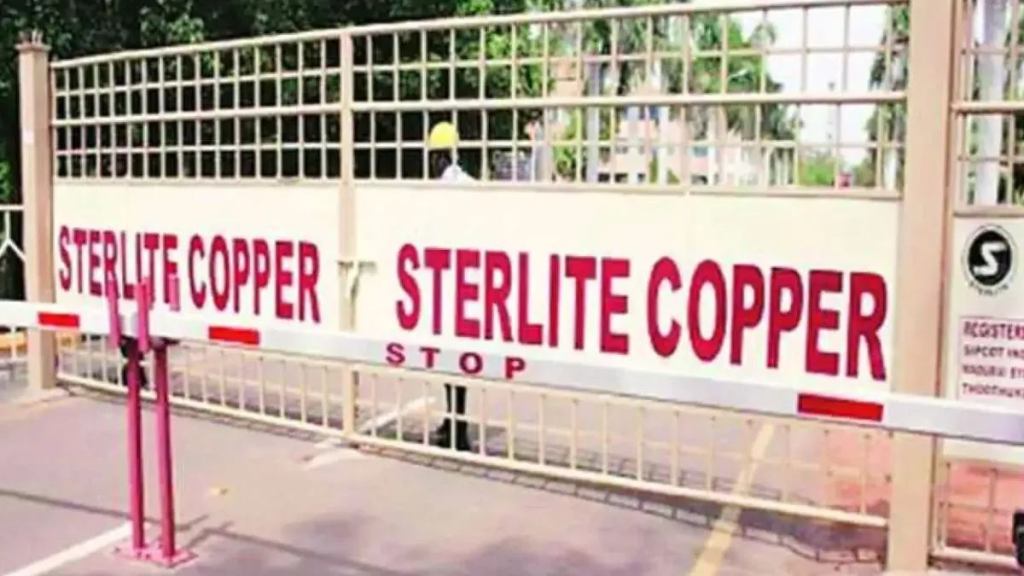– By T Velsankar
I am a native of Pearl City… one who grew up amid whisper of waves, the toll of temple and church bells, call for prayer from the mosque and hustle and bustle of the marketplace.
Thoothukudi, also known as Pearl City owing to its rich history of pearl fishing, is home to Sterlite Copper, India’s largest smelter in the copper category. The plant had faced allegation of pollution over the years. In 2018, following a public agitation, it was shut down by the authorities. The plant management has always maintained the facility has followed all emission norms, while some NGOs and environmentalists have made claims to the contrary.
News items in recent times prompt me to write this piece:
- In April, the Supreme Court granted permission to take up maintenance at the Sterlite Copper plant in Thoothukudi. A nine-member local level-monitoring committee, constituted by the district collector, is supervising the activities which will include evacuation of gypsum remaining at the plant, green belt maintenance and clearing of wild bushes and dried trees.
- There is an air of expectation – community groups and citizens are hoping for a favourable outcome when the Supreme Court begins to hear the case in August third week.
- Vedanta Group, which owns Sterlite Copper, has begun inviting Expression of Interest for supply of raw materials and for providing skilled and semi-skilled workers on contract basis (subject to the apex court granting permission to restart operations).
- The EOIs affirm priority will be given to local and regional providers.
- The Hindu Munnani, a nationalist organisation based in the State, passed a resolution at its recent meeting, urging the Govt. of Tamilnadu to reopen the Smelter.
- Trade bodies, contractors’ associations and other groups have made frequent public appeals for restoration of livelihood through reopening of the smelter.
These are positive developments. While I cannot predict the future, I look back at some of the setbacks of the past five years. As an entrepreneur for more than 40 years in Thoothukudi, and one who understands the pulse of the city, here is my analysis on what has changed… and what must change.
Income Levels: When Sterlite Copper was in operation, it had provided direct and indirect employment to more than One Lac people and engaged with more than 400 downstream industries, transporters and contractors most of whom were MSMEs. Monthly income of those affected by job losses reduced by 50%, according to a study by Consumer Unity & Trust Society (CUTS) International.
Drop in local revenues: V.O. Chidambarnar Port at Tuticorin reported a drop in revenue of almost Rs. 100 crores the year after the plant was closed.
Drop in GDP: In 2019-20, the year after the shutdown, the GDP potential of the manufacturing sector in Thoothukudi district reduced by Rs. 840 crores.
Deficit in copper production: Sterlite Copper was producing almost 40% of India’s copper requirements in 2018. Overnight, such a share cannot be replaced by other domestic companies engaged in copper cathode and copper rod production. Consequently, India is now a net importer of copper, and the price has doubled in the last four years.
Slowdown in Green Energy adoption: Equipment designed for green energy generation, such as windmills and solar panels, require significant amount of copper. Likewise, Electric Vehicles require copper to conduct energy from the battery to the power train. Hence, the clean air that green mobility can create will come to India at a higher cost since we are dependent on imports.
What has not changed: If the claim of Sterlite Copper being a ‘persistent polluter’ was true, and if we were to compare figures then and now, the city must have reported a significant drop in pollution levels five years later. A news report published on July 11, 2023, in a leading newspaper quotes a report from Climate Trends, an environmental think tank. Climate Trends says air pollution in Tamil Nadu State has declined by 22% in the last five years, further to implementation of the National Clean Air Programme (NCAP).
However, as per NCAP data, Thoothukudi continues to be one of three ‘non-attainment’ cities in the State – meaning no significant drop is reported in levels of PM 2.5 (particulate matter in the air) even five years of closure of the Smelter.
What needs to change? Awareness, outlook and public opinion.
Over the years, awareness among the public has been restricted to information presented by a set of people or groups. Environmental activists for example, retained their focus on the Smelter to justify or explain the high pollution level in the city, and refused to acknowledge the existence of another 62 Red Category industries operating in and around Thoothukudi.
Lasty, let’s examine geo-politics and its impact on socioeconomics. India’s supremacy in copper production has been a thorn in the flesh for countries which are copper producers and exporters, and a select few may have changed the equation by inciting the protests.
Will the months ahead mark a new beginning for Pearl City? Will the economy surge, ancillary industries thrive, and will India regain its place on the world copper map? Only time and the apex court have the answers.
(T Velsankar is an entrepreneur with over 4 decades experience in shipping and logistics, and active in public life as a philanthropist, social activist, President of Association of Management of Private Schools in Tamil Nadu, and President of Tuticorin Stevedores Association, Tuticorin District Aquatics Association and Badminton Association).
(Disclaimer: Views expressed are personal and do not reflect the official position or policy of Financial Express Online. Reproducing this content without permission is prohibited.)


